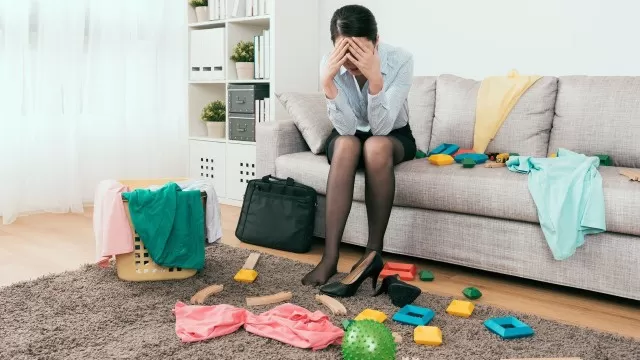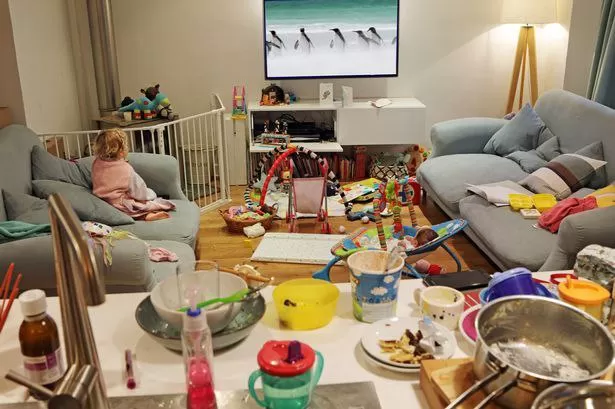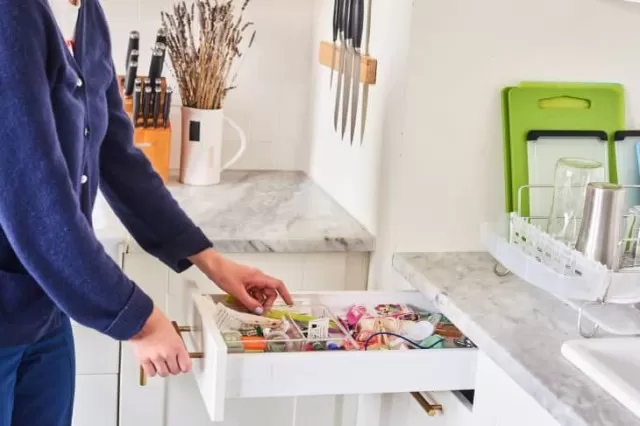Discover effective tips and techniques to transform your home into a serene and organized space with our ultimate decluttering guide.
Essential Tips for Effective Decluttering

Develop a detailed plan: Start decluttering by creating a checklist that outlines each space requiring decluttering.
Take your time: Avoid becoming overwhelmed by focusing on one space at a time and staying dedicated to the task. Sort into three piles: Categorize items into “keep,” “donate,” and “dispose” piles to streamline the decluttering process.
Create subcategories: Within the “keep” pile, separate items that need repairs or maintenance before they can be used. Employ the 80/20 rule: Prioritize decluttering tasks that will have the most significant impact on your living space.
Finish with cleaning: Wait until an entire room is decluttered before cleaning to maintain efficiency. .
Room-by-Room Guide to Decluttering Your Home

Living Room:
Assess essentials: Determine necessary items and remove anything that doesn’t belong.
Relocate misplaced items: Return items to their proper places throughout the house. Organize unattractive essentials: Hide wires and use small organizers to store remotes and other items.
Kitchen
Discard expired food: Clear out space by getting rid of expired items from the fridge, freezer, and pantry. Purge unused items: Evaluate dishware, cookware, and utensils, and donate anything not used in a year or two.
Store infrequently used items elsewhere: Find alternative storage spaces for items not regularly needed in the kitchen. Organize based on frequency of use: Arrange everyday essentials for easy access and special occasion items on higher or lower shelves.
Bedroom:
Create a peaceful atmosphere: Keep only essential items in the bedroom and use closed storage options. Tackle closets: Sort clothing into sell, donate, and recycle/throw away piles.
Simplify laundry
Make sure laundry baskets are accessible and designate a spot for clothes to be worn again. Bathroom:
Remove unnecessary items
- Medications:
- Check expiration dates: Review your medicine cabinet and safely dispose of any expired medications.
- Follow disposal guidelines: Consult local guidelines or community programs for proper disposal methods, such as drop-off locations or medication take-back programs.
- Cosmetics:
- Assess expiration dates: Examine your cosmetic collection and discard any products that have expired or changed in texture, consistency, or smell.
- Dispose responsibly: Check for recycling programs specifically designed for cosmetics or dispose of them in accordance with local regulations.
- Towels:
- Evaluate usage: Determine which towels are no longer used or needed in your household.
- Donate or repurpose: If the towels are in good condition, consider donating them to local shelters or animal rescue organizations. Alternatively, repurpose them as cleaning rags or for other household needs.
- Discard if necessary: If the towels are damaged or beyond use, dispose of them in an environmentally responsible manner, following local waste disposal guidelines.
Eliminate duplicates
- Minimize duplicates: Retain only one or two of each item and let go of the rest to reduce clutter and unnecessary possessions.
- Establish an effective organizational system: Categorize your belongings and arrange them in a way that facilitates easy access to frequently used items.
- Streamline storage: Utilize storage solutions such as bins, shelves, and labels to keep items organized and maintain a tidy living space.
- Prioritize functionality: Arrange items based on their functionality and frequency of use, ensuring that frequently used items are readily accessible.
- Regularly assess and declutter: Regularly evaluate your belongings to identify items that are no longer needed or used, and remove them to maintain a clutter-free environment.
Effective Strategies for Maintaining a Clutter-Free Home

- Everything has a place: After decluttering, assign specific locations for each item to prevent clutter from reemerging.
- One-in, one-out policy: Whenever you introduce a new item to a room, remove an old one to prevent accumulation of excess belongings.
- Embrace the one-minute rule: Immediately address quick tidying tasks instead of delaying them for later, ensuring a tidy environment.
- Regular decluttering: Sustain an organized home by decluttering on a consistent basis, making it a swift and effortless process.
- Establish a donation bin: Allocate a designated box or bin in your home for collecting items to donate, fostering continuous decluttering efforts.
*The information is for reference only.